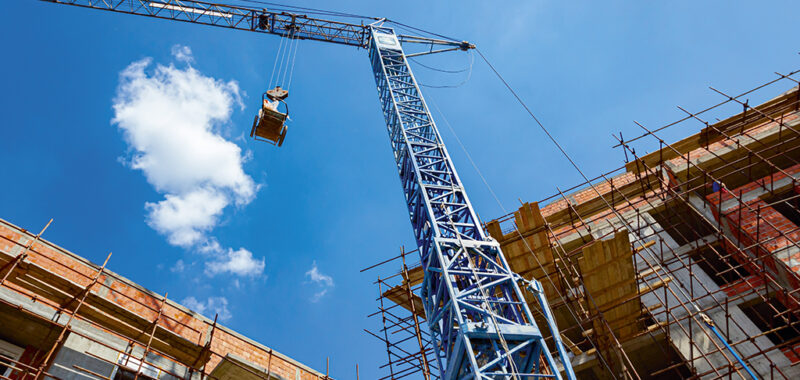A surge in project starts should not divert attention from more worrying underlying trends facing the construction sector, according to a new analysis.
The latest data from market intelligence provider Glenigan shows the number of project starts rose by 29 per cent from February to April compared with the previous three-month period.
The boost was mainly due to a “tentative uptick” in underlying starts, particularly in key verticals like private housebuilding, Glenigan said today (20 May).
However, it added that starts continued to fall year on year, with overall activity dropping 17 per cent on the same period in 2024 and a persistent drought in major projects acting as a significant dampener on growth.
The outlook is brighter for the development pipeline of major projects, according to Glenigan. It pointed to a sharp rise in contract awards, indicating a potential future recovery if public and private sector confidence rallies. But, overall, main contract awards decreased, falling by almost a third in the three months to the end of April, and declining by a tenth on last year.
Detailed planning approvals rose dramatically during the quarter, up 52 per cent on the same period last year and 51 per cent on the previous three months. But those striking figures do not represent the overall picture, as they were boosted by the government’s green light for a single project, the Lower Thames Crossing, Glenigan said.
“When the contribution of such major projects is excluded, underlying planning approvals, which make up the majority of construction activity, posted weak results, falling against the preceding three months and last year,” it said.
Glenigan economic director Allan Wilen said that while the results of the latest review were superficially impressive, closer scrutiny revealed a sector still struggling to regain its foothold.
“UK construction is continuing to adjust to mercurial market conditions, sometimes having to respond in the moment to the constantly shifting international and domestic economic landscape,” he said.
“Particularly, higher operational costs, likely to keep rising in the near future, mean clients are delaying investment decisions.
“Likewise, contractors are lukewarm to putting shovels in the ground right now when funding is not forthcoming.”
Although US tariff policy had undeniably stoked uncertainty, Wilen was hopeful that steps to de-escalate trade tensions could go some way to improving confidence.
“Furthermore, the government clearly setting out its strategic store will also help to boost momentum as more promised public works are greenlit,” he said.

